Nicolás Wolovick
ROOM 3. HPL for the global south
Good practices in HPC Management, Workshop Chair
and Instructor of HPL for the global south
Universidad Nacional de Cordoba
.
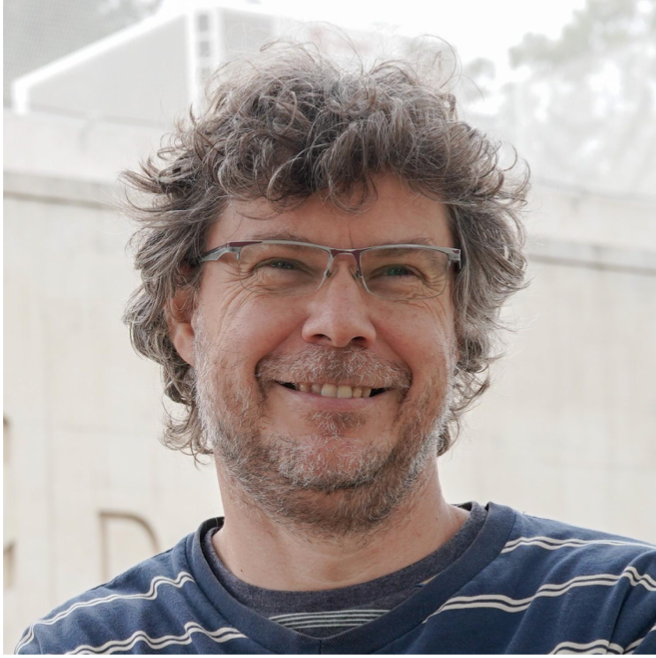
ROOM 3. HPL for the global south
Good practices in HPC Management, Workshop Chair
and Instructor of HPL for the global south
Universidad Nacional de Cordoba
.
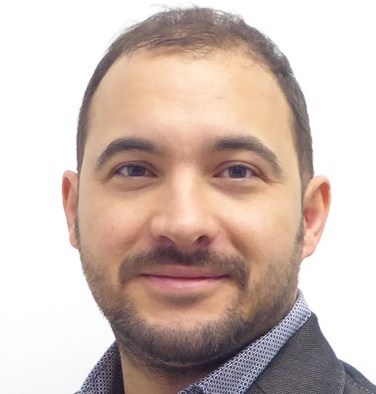
Good practices in HPC Management
Ivan will bring the experience he gained at the ICTP where he daily meets scientists from LatAm and tries to apply the idea of "Ecosystem for Scientific Computing" at different scales. This later concept encompases all the components that are necessary to impact in the research production of a scientific community which normally includes sysmanagers, sysadmins, application specialists/user support and skilled scientists, all working together to get the most science out of the HW.
.

Good practices in HPC Management
Fernando will present his experience, as he works in a center where only two persons are capable of making all this happen for their institution (Temple University College of Science and Technology).
.
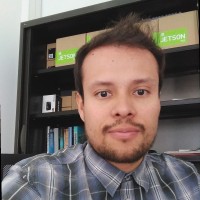
Biomedical Engineering Talk
AI-driven multi-omics stratification for severity assessment of COVID-19 patients in acute-stage and chronic risk factors discovering
BIO
Postdoctoral Researcher at ARTORG Center for Biomedical Engineering Research University of Bern
ABSTRACT
AI-based lung image analysis enhances disease severity assessment, reducing ICU overload with standardized admission criteria for COVID-19 patients. Expanded AI research is vital for integrating it into clinical practice and preparing for future pandemics.
Automated deep learning for COVID-19 lung segmentation and quantification shows potential. However, disparities exist between clinicians' and AI communities' studies on COVID-19 patient care. Integrating AI into clinical practice demands addressing challenges in standardized severity classification, lung lesion characterization, multi-modal imaging integration, robust long COVID quantification, and acute-to-chronic phase understanding. These steps are vital for enhancing patient care.
This study aimed to develop a modular AI-based approach for modelling a patient's current state and predicting the short and long-term progression of COVID-19 patients. The specific objectives were to establish a severity assessment system based on the WHO clinical progression scale and to discover the biomarkers that lead to a chronic phase.
We developed AssessNet-19, a multi-class radiomics model using chest CTs and standardized WHO-derived severity assessment (Henao et al., 2023). This model improved the accuracy of clinical severity evaluation for COVID-19 patients by 12% compared to radiologists and 11% compared to a single-class lesion model. To achieve this, we curated a diverse, multi-center COVID-19 dataset encompassing radiological, clinical, and laboratory data. This comprehensive dataset reduces biases, enhances generalizability, and includes varied cases, severities, CT scan sources, and contrast use.
The AssessNet-19 model with standardized severity scaling and radiological characterization, can be an easy-to-use and versatile foundation for translating findings as clinical decision support systems in hospitals, useful for both the COVID-19 pandemic and future crises.
.

Guest talk - Advanced Computing Trends In LatinAmerica WS
UbiHPC
.
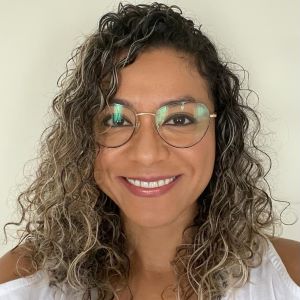
Biological Engineering Talk
Tailoring HPC skills applied to bioinformatics and omics to understand key biological features
BIO
Professor at the School of Biological Sciences National University of Costa Rica
ABSTRACT
Bioinformatics is a globally recognized and established field of study, applied across a wide range of organisms and datasets. This also applies for omics disciplines like genomics and transcriptomics, which contribute to unravel an organism’s potential from a metabolic perspective, holding great value across various applications. However, the wet-lab technologies associated with these types of studies are expensive and not always accessible to Latin American countries. Omics data requires bioinformatics processing, which relies heavily on high-performance computing (HPC) due to the massive amounts of generated data. However, it presents an opportunity gap for low-income countries, by outsourcing a portion of the experimental process and focusing energies on the computational analysis.
At the Universidad Nacional in Costa Rica, we have taken advantage of this opportunity. In this talk, I will share some ongoing projects focused on understanding an organism’s biotechnological potential for its manipulation and use. We have studied the fungal genome of B. bassiana to comprehend key metabolic and pathogenic elements, for its future application in designing biomaterials for agronomic purposes. We have also analysed coffee transcriptomics, studying both wild and mutant individuals to comprehend their responses to rust infections, caused by fungi, with the aim of developing nationally resistant strains. Currently, we are studying fungal biosurfactant production for industrial and health applications.
.

Topic: Ethnic and gender diversity in technology Profile: Senior Product Manager at instaleap a SaaS platform built from the ground up to drive high performance on-demand operations for supermarkets the platform is now serving dozens of leading supermarket chains in LATAM, USA and Europe; Veronica has over 6 years of experience in designing, structuring, implementing and managing products with a technological focus, innovation and digital transformation for the financial and services sector. Member of Pioneras, a Colombian women's organization that seeks to promote knowledge and the closing of gender gaps in technology and co-founder of Digital Diaspora, a community that looks to increase the representation of afro colombians in the tech industry.
.

Circular Architectures for Advanced Computing
Circular Architectures for Advanced Computing, Workshop Chair
CITI Lab - Univ Lyon, INSA Lyon, France
.

Good practices in HPC Management
Good practices in HPC Management, Workshop Chair
and Instructor of HPL for the global south
Universidad Nacional de Cordoba
.
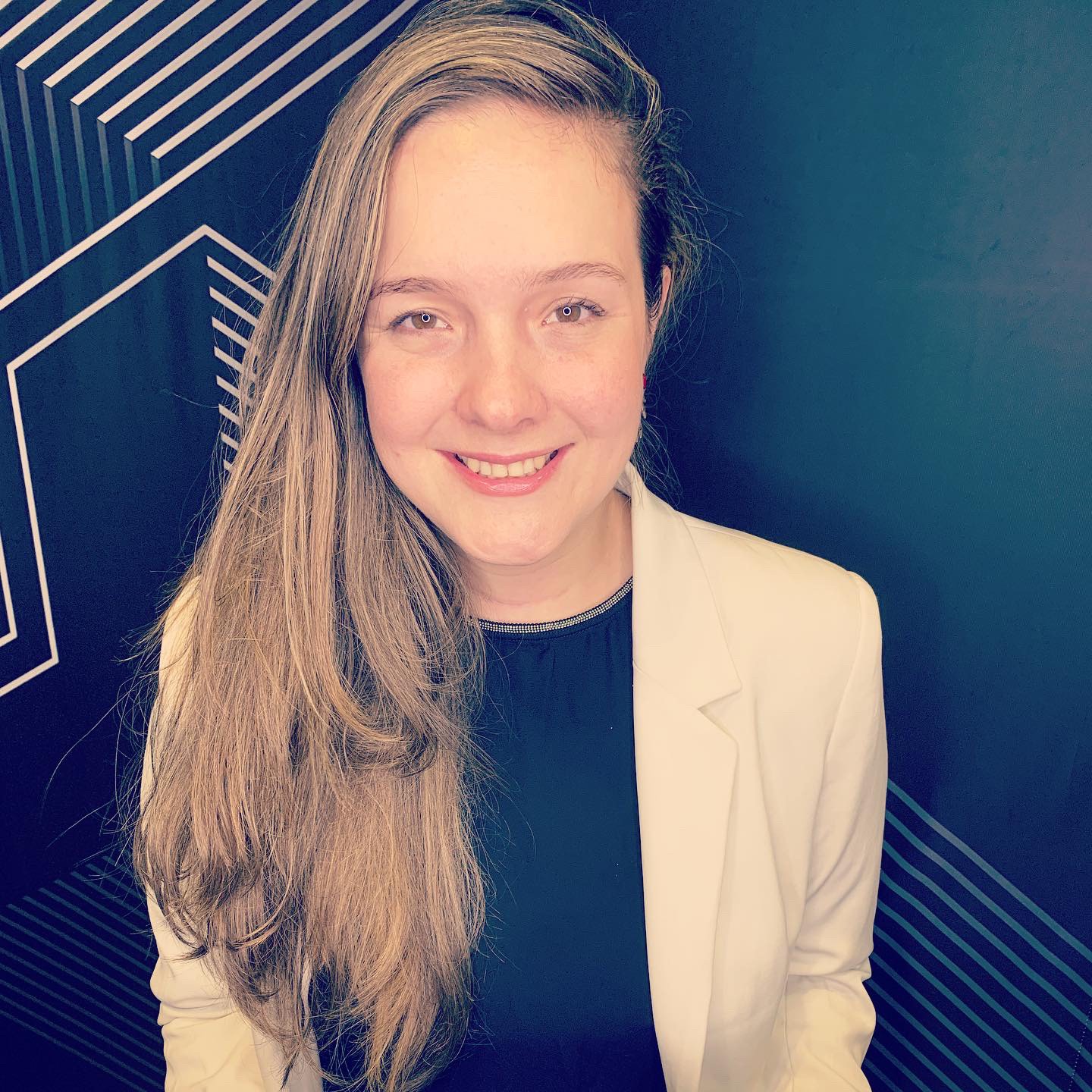
BIO: Award-winning Community Builder at @Pionerasdev —recipient of IBM Open Source Community Grant 2020—. Google Launchpad Mentor, Google Developer Expert in Web Technologies and Women Techmakers Ambassador. Passionate developer and designer with a knack for combining technology and community development. Marian Villa es Diseñadora Senior Full-Stack. Fellow de la Real Academia de Ingeniería de Londres. Líder de comunidad en @Pionerasdev, recipiente del premio de Comunidad de Código Abierto de IBM 2020. Mentor de Google Launchpad, Experto en Desarrollo Web en las comunidades de Google y Embajador de Women Techmakers a nivel global. Desarrolladora, diseñadora y educadora, apasionada por combinar habilidad de tecnología y desarrollo comunitario.
Title: "PionerasDev: Transforming Colombia through Code Empowerment" PionerasDev is a non-profit organization on a mission to empower women in Colombia through the world of coding. Our mission is clear: To empower more women, enabling them to actively utilize their tech skills to dream, inspire, innovate, create, and contribute to a better world through cutting-edge programming languages. Our focus lies in empowering, fostering entrepreneurship, promoting engagement, and providing education to women in the tech industry. We're not just changing algorithms; we're rewriting the narrative.
.

In 2012, Daniel Janies joined the University of North Carolina at Charlotte as The Carol Grotnes Belk Distinguished Professor of Bioinformatics and Genomics. Dr. Janies received a Bachelor of Science in Biology from the University of Michigan in 1988 and a Ph.D. in Zoology from the University of Florida in 1995. Dr. Janies worked as a postdoctoral fellow (1996-99) and as a principal investigator (2000-02) at the American Museum of Natural History where he led a team that, using off-the-shelf components, built one of the world’s largest computing clusters in 2001. Dr. Janies originated the field of mapping pathogen genetic data in concert with geography and host animals. Dr. Janies was a tenured faculty member in the College of Medicine at the Ohio State University where he served as a national principal investigator in the Tree of Life program of the NSF. Dr. Janies’ recent awards include DoD sponsored work to understand the spread of pathogens. Dr. Janies is an elected Director of the board of the North Carolina Biotechnology Center. Dr. Janies has advised the Obama White House, the Pentagon, and testified to both Houses of Congress. In 2022, Janies was named Co-director for Computational Intelligence to Predict Health and Environmental Risks
.

In 2012, Daniel Janies joined the University of North Carolina at Charlotte as The Carol Grotnes Belk Distinguished Professor of Bioinformatics and Genomics. Dr. Janies received a Bachelor of Science in Biology from the University of Michigan in 1988 and a Ph.D. in Zoology from the University of Florida in 1995. Dr. Janies worked as a postdoctoral fellow (1996-99) and as a principal investigator (2000-02) at the American Museum of Natural History where he led a team that, using off-the-shelf components, built one of the world’s largest computing clusters in 2001. Dr. Janies originated the field of mapping pathogen genetic data in concert with geography and host animals. Dr. Janies was a tenured faculty member in the College of Medicine at the Ohio State University where he served as a national principal investigator in the Tree of Life program of the NSF. Dr. Janies’ recent awards include DoD sponsored work to understand the spread of pathogens. Dr. Janies is an elected Director of the board of the North Carolina Biotechnology Center. Dr. Janies has advised the Obama White House, the Pentagon, and testified to both Houses of Congress. In 2022, Janies was named Co-director for Computational Intelligence to Predict Health and Environmental Risks
.
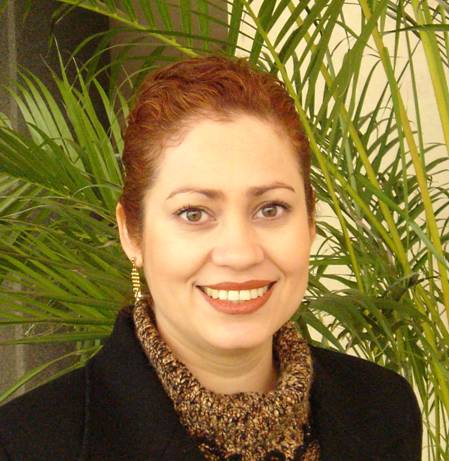
She is doing a postdoctoral research stay at the Centro de Investigaciones Biológicas del Noroeste, studying the effects of changes in climate on benthic and demersal fish species that inhabit the Gulf of California. She obtained a PhD of Science with a specialization in Biotechnology from the Instituto Tecnológico de Sonora. Her work was focused on bioclimatology, using computational simulation methods. She holds a Master of Science degree with a specialization in Geology, focused on geohydrology, from the University of Sonora (UNISON). She is a graduate in Informatics from the Instituto Tecnológico de Hermosillo. She leads the High Performance Computing Area of the University of Sonora (ACARUS) and is also a lecturer at UNISON. She has produced various manuscripts detailing advances and results from research projects in which she has been involved, and she has engaged in outreach activities through radio, magazines, academic events, and the internet. She has collaborated on various projects related to the use of geographic information systems applied in climatology, oceanography, ecology, biology, and bioclimatology, primarily. She has organized, attended, and participated as a speaker in national and international academic conferences and events related to high-performance computing and the biological and natural sciences. She is a member of the Mexican Joint Research Unit (JRU-MX), the Special Council for E-Infrastructures in Mexico of UEMEXCYT, and the Mexican Network of Supercomputing/CONACYT. She is a candidate for National Researcher in SNI-CONAHCYT.
.
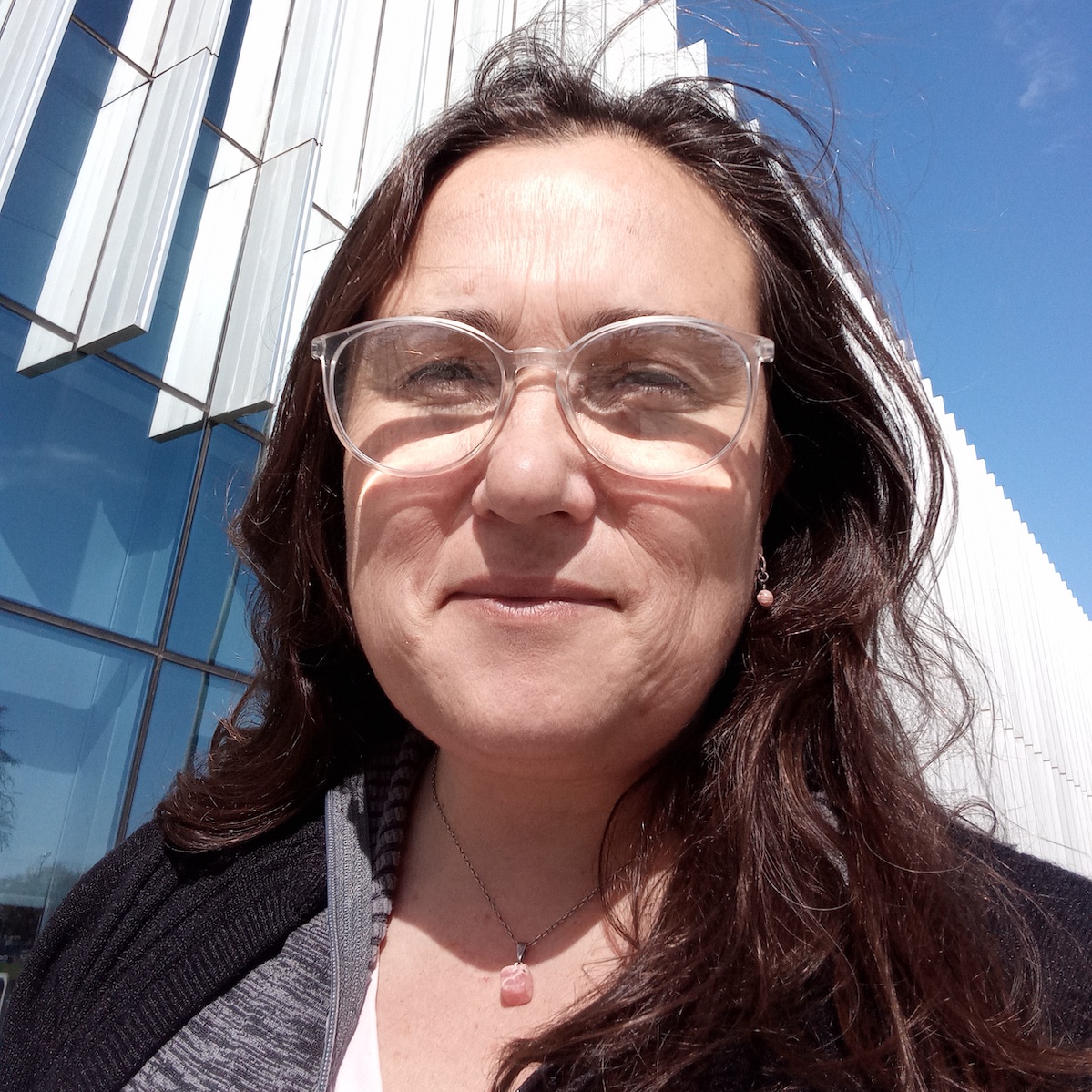
Possible strategies to improve gender equality in STEM: UBA experiences.
BIO
PAULA VERGHELET is a Lecturer and Teaching Assistant (Full-time) at the Computer Science Department, Universidad de Buenos Aires. She holds a Licentiate
degree in Computer Science (equivalent to Msc) specialized in distributed systems. JAIIO-SADIO EST 2015 Award for Final Degree Project. Distinguished Student of Universidad de Buenos Aires in 2016. She is author of several contributions in the field of High Performance Computing focused on distribution of resource information.
She is a member of SADIO, WHPC, LA-WHPC Chapter (Latin America High Performance Computing Chapter) y GT 7 (Mujer Latinoamericana en la Computación - CLEI). Departmental representative of the "FCEN Sin Barreras" program of the Secretariat for the Promotion of Equity and Gender (SEQUIGEN) - FCEyN - UBA.
ABSTRACT
Aware of the dimension of the gender-gap in STEM, many strategies have been developed to reduce it in recent years.
As neither cultures nor education are stranger to these situations, many higher education institutions in Argentina (mainly the Universidad de Buenos Aires) have developed several protocols to avoid violences or discrimination against women, improving conditions for gender equality.
Thanks to the related legislation in force in Argentina, it is also possible to coordinate between institutions of the Scientific and Technological sector (i.e.: MINCyT - Capacitación Ley Micaela) the deployment of policies that improve the day-to-day life of women dedicated to science and technology.
Bearing in mind the relevance of sharing experiences to enhance cultures, my talk will focus on the efforts and achievements towards gender equality at the UBA.
.